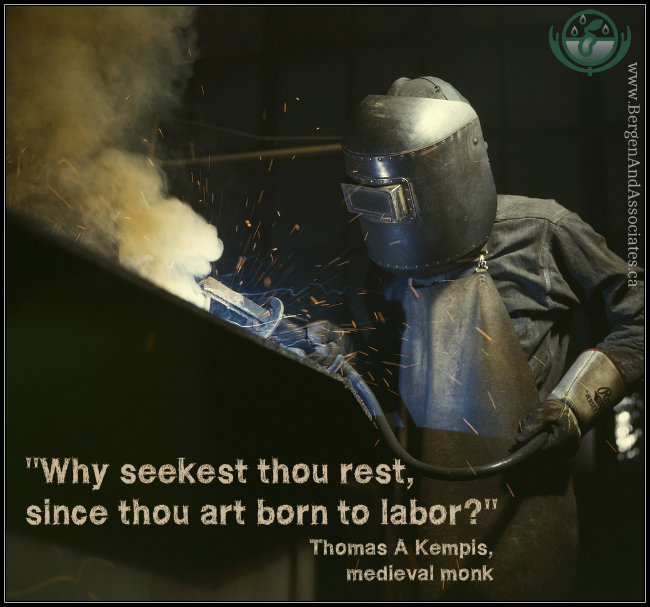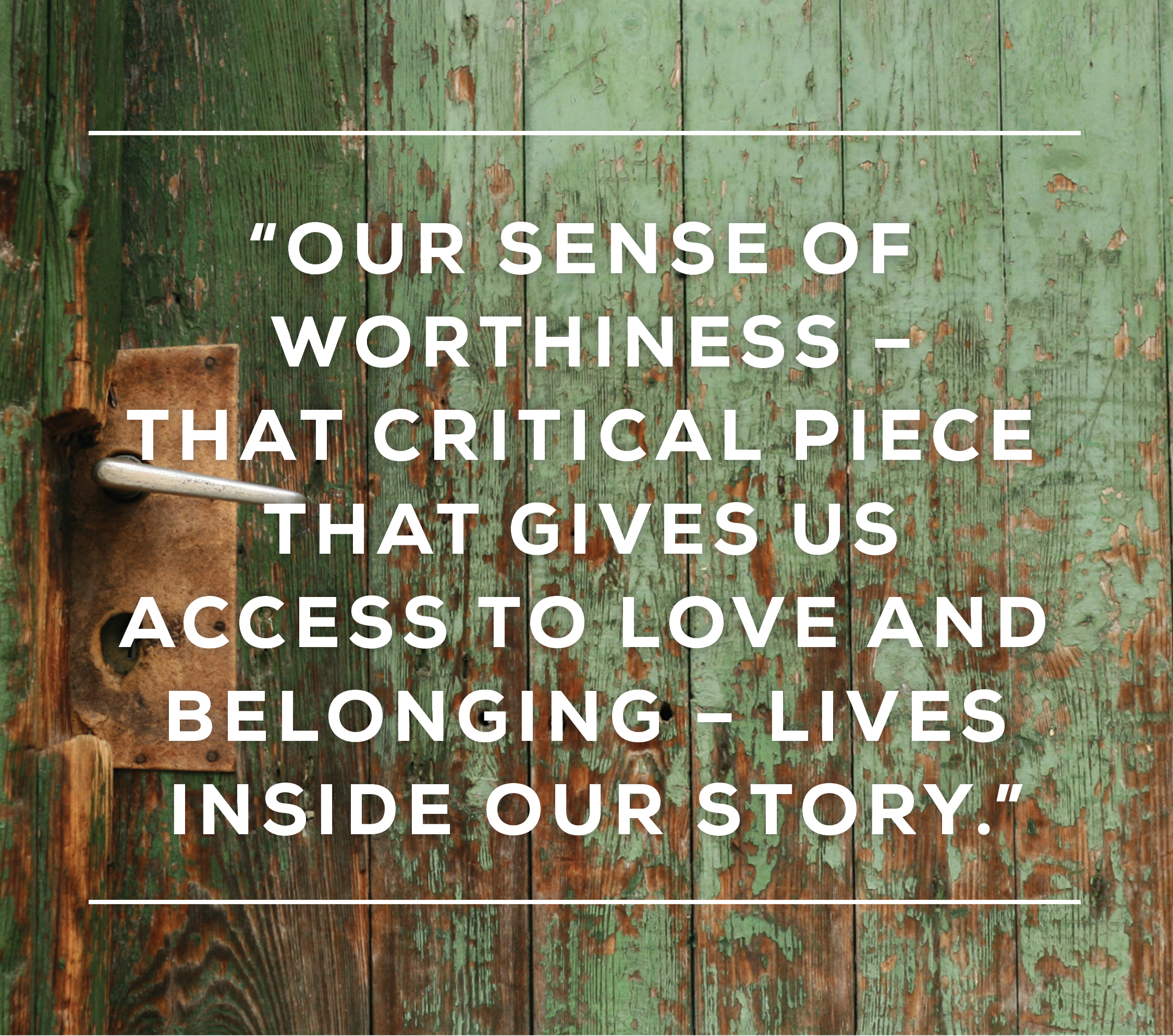I am a therapist. Yep.
I am also a mother, a daughter, a sister, a niece, a friend, a cook, a writer, an eater, a teacher, a mentor, an auntie, a cook, a reader, a napper, a runner, a speaker, a walker, a parishioner, a sleeper, a Downton Abbey and Grey’s Anatomy watcher, a lover of beauty and nature and candles and a capalla music. I could go on…but you get the idea. I’m much more than my work.
I’m a person…I’m even more than my roles and activities. I love to laugh, and joke around. I have a soft heart and I like to know what’s going on in the world, even if it makes me sad. I get cold easily, and love warm weather and sunshine. I’m a little organizationally challenged (some might say messy and disorganized) and I get stressed when I have too much on the go. I enjoy my friends and a skinny vanilla latté does my heart sooo much good. I wish I was allergic to chocolate, and I hate mornings.
I am so, so, soooo much more than my work, and am even more than my activities. I don’t just do, I also just am.
But as is the social custom, often when I attend functions, the easy conversation starter is, “What kind of work do you?” (And I suspect I am as guilty of asking this question as anyone else)
…when people asks me what I do, I get a little frustrated…because what they want to know is that I’m a therapist. But that cheats me and the asker of so much of who I am.
For a long time, when people would ask me what I did, I would say something vague like, “I’m in communication” or “I’m a university educator” (which is true, but not entirely encompassing) and then sail right on through the conversation to breeze on to some other topic.
Because often, when I respond that I am a therapist to a new acquaintance’s inquiry, something happens. I can almost see the person’s brain rapidly go through this sequence: “Stop click. Rewind click. Fast forward through the conversation to this point to review if something was said that they are worried a therapist would judge.” After this quick mental review of the conversation, there can be an explanation about something that was previously said so that I will understand what they really meant or some nervous laughter in relief that nothing was said that they are concerned about…as they sheepishly acknowledge their mental process
They judge me about how they have decided I will judge them, based on my profession.
For the record, when we therapists aren’t in session, we aren’t working. We are regular people who enjoy regular conversations…though by nature we may be more comfortable than the average person getting into deeper conversations…not because we are therapists, but rather, that would be one of the reasons we became a therapist! 🙂
There is a tendency in our culture to identify each other and really “see” each other through the lens of our jobs. This presents at least two major hassles:
1. Our job become our identities
If we are identified by our jobs, then we can see ourselves only as valuable as our jobs are, or only worth as much as how successful the last project was. If our jobs are our identity, then the job MUST be done very well…because your own well being is completely dependent on it.
It might mean you only really feel valuable and meaningful when you are working…which can lead to some pretty unhealthy work habits.
When one’s identity is wrapped up in work, one’s value is then determined by one’s performance…meaning one becomes externally motivated…needing other people to notice and acknowledge good work.
A person’s well being becomes vulnerable in an unhealthy way when one’s identity is defined by work…what if the company downsizes, and you are demoted or terminated because of the economy? What if your boss has indigestion while he is critiquing the report you’ve spent weeks working on? What if the board has politics that have nothing to do with you and so the pitch for your project is unsuccessful?
When one’s wellbeing is defined by work, the hustle begins at work. The stakes are high, and so now you work, not because you’d like to do a good job, but because you need the good performance to prove your worth. That raises the stakes…the joy is sucked out, the pressure is high, and the stress mounts.
- When your identity is determined by your job, you can end up doing what you think makes you important, rather than what makes you come alive.
- The project presentation becomes a performance to prove your worth rather than a meaningful connection with people who have asked you for something you’ve developed…and then engaging with them on a culmination of your work.
- Helpful feedback becomes crushing judgement on your character, rather than information to know what would be helpful to the organization.
- When life circumstances dictate a job that pays the bills, but isn’t ideal, it leaves a person feeling like they can’t be themselves
Having your occupation/job/work become your identity limits you and others…
2. When work becomes our identity, people we connect with can feel that their occupations, their income, their status are what is important, and we cheat people out of their own personhood.
Some of the most incredible, wise, and wonderful people I’ve known in my life didn’t work. They lived in personal care homes where I worked having survived catastrophic events like stroke, or living with debilitating diseases like Multiple Sclerosis or Parkinson”s. I enjoyed their warmth, sense of humour, and compassion…they were people who enriched my life and the lives of others incredibly…even though they weren’t employed
But I’ve had painful conversations where disabled folk have felt useless because they were no longer able to work…and if they didn’t work, they didn’t quite know who they were, or if they had any value.
And moms who take a year or a decade off from work to raise children are working hard, at what many would say is the hardest and most important work in the world, can be discounted. It’s painful to watch a stay-at-home mom at a party respond to the question, “And what work do you do?: and she attempts a cheerful and confident front stating that she is home with the children…she is working to own it and be proud of it, but there is there painful, subtle falter that betrays the fact that she’s worried the questioner aint gonna buy it.

We are born to work.
Ideally, work is place where we can express our gifts and talents. It is where we can expend efforts into something that is meaningful, and makes the world a better place.
I’ve had jobs that have pretty much only been good for the pay check while putting myself through school…and then it was a chance to use my efforts to work towards something bigger in my life…it paid the bills. During those jobs, I put in the time to get the pay check…doing the work with integrity as much as I could, given that that is one of my core values. During those times, it was even more important to make sure my life was full of good things so as to make sure that my wellbeing wasn’t dependent on my job.
Work is one of the ways we express who we are, because
- it exercises our gifts and talents
- it allows us to be productive and get things done…and mastery of skills and completion of tasks is one way we can feel good about ourselves
- it allows us to have an income which gives us freedom to express ourselves by spending it in accordance with our values–paying the rent/mortgage to provide a home, saving for a longed for vacation, putting a child through college
I’ve been working to be mindful of “we are not our work” with my Junior Tribe Members. For example, after a big game, we don’t talk about what he should have done better, or the play he missed, or how fabulous he played. I don’t want him to connect my feelings about him based on his performance.
Rather, I might note how I could see him working to maintain his composure after a bad call by the ref, or how I could see him encouraging his teammates when the momentum sagged, or how hard it must have been for him when another player didn’t treat him well and his frustration leaked out. I try to notice the expression of his character in the game in a way that makes it less about what he did, and more about who he is. I want him to see his value and worthiness in his story.

My JTM, like all of us, is a human being, not a human doing.
And we all need that reminder from time to time.






Write a Comment